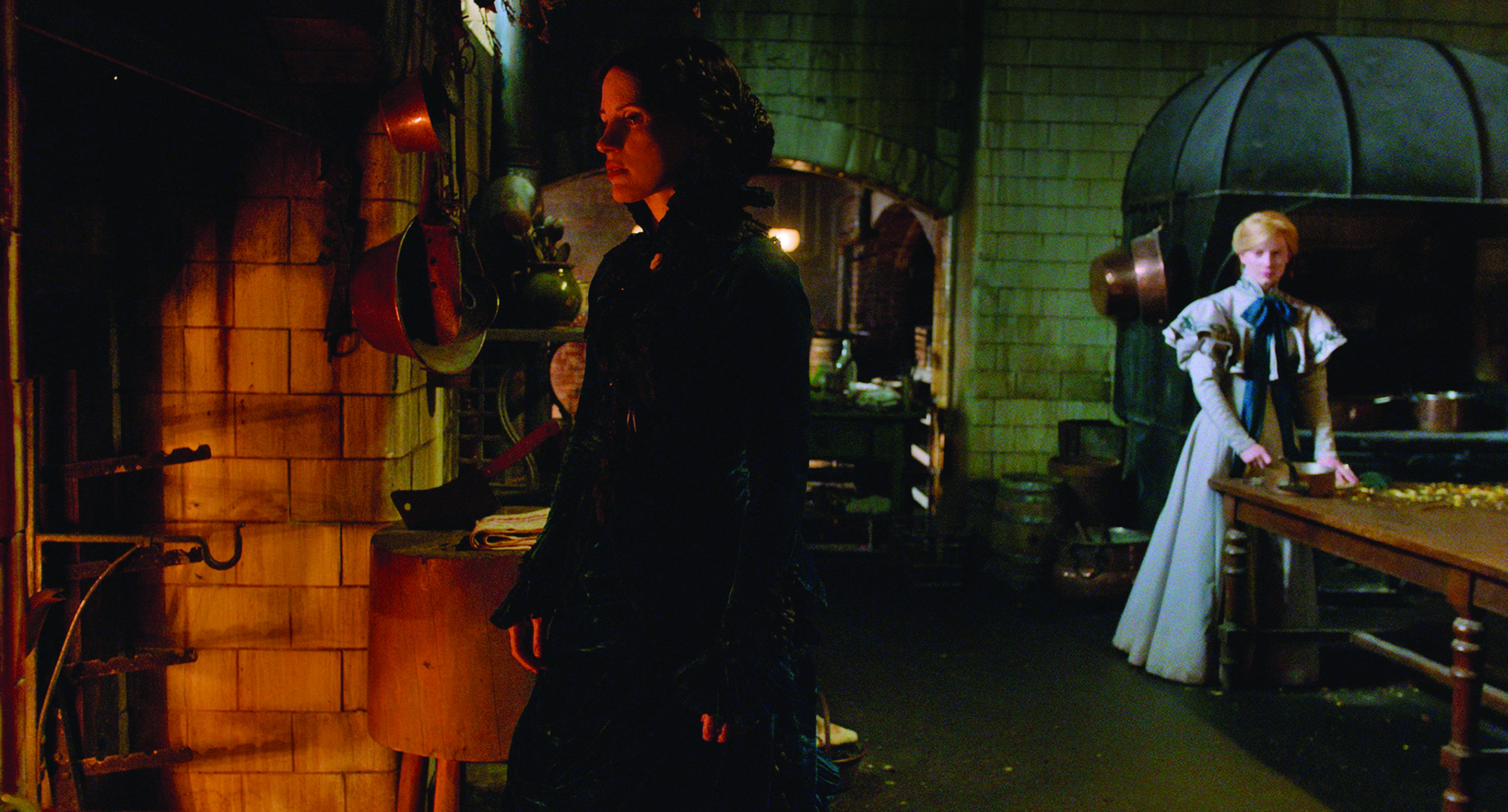This month, Guillermo del Toro’s Crimson Peak hit theaters, and some have been coming away disappointed. It’s not that it’s a bad movie (it’s quite good, actually), but that it’s not particularly scary. As protagonist Edith Cushing repeats throughout the movie, it is not actually a “ghost story,” but a “story with ghosts,” in which the “ghosts are metaphors.” It’s a Gothic romance, sort of a cross between classic Charles Dickens and a Hammer Film Production. But you wouldn’t know that from the advertisements, which heavily emphasize the horror aspects of the film.
In the world of video games, a similar problem occurred last week with Halo 5. The promotional campaign focused on a head-to-head with dual protagonists Locke and Master Chief, with one executing the other. However, fans have quickly come to discover that the advertisements were a complete diversion, extremely mischaracterizing the story with inaccurate plot points and scenes which flat-out don’t exist in the title. Disappointment with the campaign story has been consistent in reviews and fan discussions about the game.
Similarly, this year’s Assassin’s Creed title, Syndicate, has received praise in reviews for its co-protagonist system, in which the female counterpart, Evie, is on equal footing with her brother Jacob. The opinion that Evie is the best character in the game and one of the best in the entire franchise is near-unanimous in reviews, yet if you’ve been paying attention to the advertising campaign, you would have no idea. Commercials feature Jacob exclusively, with Evie barely registering as a silhouette in some shots. Pre-release gameplay footage has almost all been of Jacob, and even convention demos have mostly shied away from Evie.
All three examples are situations in which marketing created expectations for a piece of entertainment that were counter to the piece’s very purpose. This sort of thing happens rather frequently in systems where the marketing team and the producers/developers are completely separate entities with different purposes. The creators are tasked with creating a story or experience that their audience will love and appreciate as a whole, and the marketing team is tasked with finding a shorthand or niche to shove a product into and more easily sell. Sometimes the very purpose of a narrative is too complicated to explain in 30-60 seconds, or considered outright “unmarketable,” and the public gets lied to.
It’s sort of a necessity, I suppose, but inaccurate marketing can really alter one’s experience with a piece of entertainment. With a movie like Crimson Peak, some of the negative reviews are completely honest and valid. The viewer went in having been conditioned to expect a certain kind of movie and, when the actual film failed to affect them in the way they were expected, it was a disappointment. Meanwhile, somebody viewing the film without having been influenced by the marketing may thoroughly enjoy it, as the movie itself frames its narrative and genre quite effectively from the very first scene.
The same can be said for Halo 5 (although, from what I’ve heard, perhaps the developers should have included a more compelling story in the first place), but Assassin’s Creed Syndicate is a bit different. From almost all accounts, Evie’s presence and playability in the game is a huge plus, one that the marketing team (stupidly, cynically) assumed would be a turn-off to the largely male gaming demographic. In such situations, the marketing inadvertently adds to the game’s reception: people were perhaps skeptical about the game before its release, and came around to like it more once they actually played it.
In any case, it is clear that marketing absolutely has an effect on how we experience media. While it’s meant to pique our interests and get us to fork over some cash, it colors our expectations and sets the barometer on which we will gauge our experiences. Because of this, the most pure way of experiencing anything is to watch/read/play without having consumed ANY advertising at all.
However, in the year 2015, when online discussions are fueled by pre-release hype and so much of our entertainment is ad-supported, that’s a near-impossibility. And so, we owe it to ourselves to try and wipe our own slates clean any time we watch, read, or play something. Marketing may drive us toward a piece of entertainment in the first place, but if we allow our actual experiences to be manipulated by it, then we may lock ourselves out of enjoying things for wholly unexpected reasons. If we return to Edith Cushing’s explanation of her work (and Crimson Peak), let the ghosts be metaphors for ad campaigns. Our stories may have ghosts, but we cannot let them become ghost stories.
